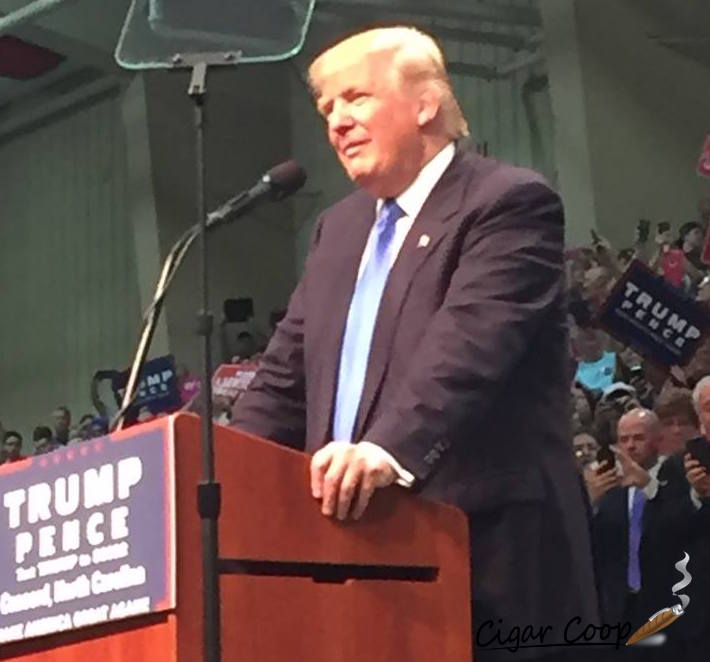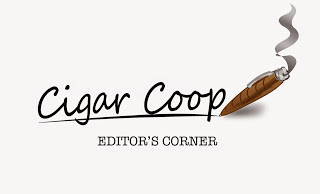With Donald J. Trump set to become the 45th President of the United States in January 2017, there has been renewed optimism by the cigar community in terms of the industry’s battle against the U.S. Food and Drug Administration (FDA). As many know, the battle is centered on fighting the new Deeming Regulations the FDA has imposed on premium hand-made cigars. While certainly the optimism can be justified, the road ahead is still quite difficult and a lot will still need to happen for the cigar industry to make progress.
Why the Optimism?
It was the 2009 Family Smoking Prevention and Tobacco Act that gave the FDA authority over premium cigars. This was signed into law by President Barack Obama, a Democrat. Obama, has also been associated by many with implementing many federal regulations under his presidency. Ultimately, it is President Obama who is looked upon as the one who handed the FDA power of the cigar industry.
The new President-elect, Donald Trump has pledged tor reduce regulations. In his “Contract with the American Voter”, Trump pledged that for any regulation created, there must be two regulations eliminated. Given this position, and the fact that Trump is not a Democrat, this is a contributing factor to the optimism the cigar industry has against the battle for the FDA.
Another reason for optimism is the Vice President-elect Mike Pence has shown signs of being friendly toward the cigar industry. In 2011, while he served in the House of Representatives; the Traditional Cigar Manufacturing and Small Business Jobs Preservation Act of 2011 (HR 1639). In 2015 as Governor of Indiana, he signed Senate Bill 463 into law that ammends the Indiana State Clean Air Act that allowed for the establishment of new cigar bars.
The Challenge

In terms of President-elect Trump, while we know his position on regulations, his position (if any) is not clear when it comes to the tobacco industry and in particular the premium cigar segment. We do know he does not smoke and has told his children not to smoke. During this past election cycle, Cigar Rights of America wrote an open letter to the Presidential candidates asking for support in the battle against the FDA. We don’t know if Trump read the letter, nor do we know if the cigar industry has had any contact with Trump’s inner circle on this topic. There is also a general feeling that Trump will focus on bigger problems than what is facing the small cigar industry. As a result, it is very much an unknown if or how Trump would react to supporting the cigar industry against the FDA.
While we do know Vice President-elect Pence has supported the industry in the past, it’s a similar story. We don’t know if he has seen the open letter, nor do we know if he has had recent contact with the industry.
Don’t Count on Senator Marco Rubio or Rudy Giuliani
There is a feeling that both Senator Marco Rubio and former New York City Mayor Rudy Giuliani, both of whom have shown support for the cigar industry can possibly help penetrate the Trump inner circle. This feeling is most likely looking at the glass half full instead of half empty.
Senator Rubio has been a sponsor of the legislation in the Senate to exempt premium cigars since 2011. He has been a part of this legislation for six years and has shown an affinity for cigars. Back in 2012, Rubio gave a speech at the 2012 Republican National Convention where he talked about his grandfather’s love of Padron Cigars and how he used to sit with his grandfather as he smoked cigars. He recently visited the J.C. Newman Cigar Factory as a part of what was most likely a campaign stop to show his support for the premium cigar industry. However, it is well-known that Rubio and Trump are not close. Rubio pretty much has provided only lukewarm support to Trump since losing his own chance at the nomination. As a result, the likelihood that he would be the agent to bring this issue to Trump’s attention is a long-shot. While Rubio has demonstrated he understands the issues facing the cigar industry, he has not gotten much done to advance the cause of saving the premium cigar industry.
While Giuliani’s relationship is different, ultimately it is unlikely for him to be the agent of change either. Giuliani is closer to Trump and it is speculated he is up for a cabinet position. On election night, Giuliani appeared on Fox News and talked about his love of Little Havana, Padron, and Don Pepin Garcia. However, if Giuliani gets a Cabinet position, it probably won’t be as Secretary of Health and Human Services (where the FDA falls under) but in another area (such as Homeland Security) – where it will focus his attention in other areas. In addition, Giuliani has been in many cigar shops and met with many cigar people. He hasn’t shown any inclination to help the industry further in this cause. There is no reason to believe he will start doing this now.
The Secretary of Health and Human Services Post Will be Key
Since the Trump Administration will be naming a new Secretary of Health and Human Services, (HHS) this is going to be the appointment cigar enthusiasts will need to look at closely. This is because the FDA is an agency under HHS. If the cigar industry wants to have any influence in this area, the appointment will need to be of someone who is sympathetic to the needs of the cigar industry. Even more so, it needs to be someone who is willing to stick his neck out on the line. Possibly someone like a Governor Rick Scott of Florida could fit the mold of such a candidate. In 2014, Scott wrote a letter to the FDA calling for a premium cigar exemption. I am not saying Scott is a candidate, but it would probably take someone like that in order for the appointment to have any weight for the cigar industry.
Trump Can’t Totally Undo the Regulations with the Swoop of a Pen
As President, Donald Trump cannot repeal the regulations with a pen. In order to repeal a law, a bill must be introduced to Congress. This means when the new Congress takes place the legislation for an exemption of premium cigars will need to be introduced again. While garnering a bunch of co–sponsors over the years, these bills have failed to advance. They have served a purpose – namely to built support and awareness of the cause of the premium cigar industry’s challenge agains the FDA. Unless something changes, it is unlikely these bills make it to Trump’s desk on the Oval Office.
The funding mechanisms for the FDA that come through the Appropriations Bill could a way to get an exemption or move the predicate date for grandfathering from 2007. The upcoming Appropriations Bill still has to pass the House and be introduced to the Senate. It will ultimately need to be signed off by President Obama. The Appropriations Bill is an annual event, thus any language in the bill is only good for one year. In other words, an exemption and change in predicate date needs to make its way into each annual Appropriations Bill. This is a bill that would ultimately need to be signed by a President Trump.
Most Likely… There Will Be Another White House Petition
Like it or not, we are most likely going to have another White House petition come 2017 on getting an exemption for premium cigars.
I realize the petitions seem like pushing on a rope. In general, I think the industry is going to need to make a bigger grass roots push with a petition – especially now that the threshold to get the petition looked at has moved from 25,000 signatures to 100,000 signatures. The cigar industry’s first petition hit the 25,000 plateau, but ultimately was kicked back to the FDA. The cigar industry’s second petition fell well-short of the 100,000 and didn’t even reach 25,000.
A grass roots push will mean more than posting this on Facebook and social media. It will need to more than just the CRA Ambassadors doing their job. It’s going to involve every manufacturer, brand owner, and retailer making direct contact outside of social media with consumers to sign this petition. It’s also going to involve explaining to consumers why they are being asked to sign yet another petition. Ultimately, for a petition effort to work, it’s going to take a well-orchestrated plan.
I would even call on the cigar and electronic cigarette industry to possibly look at a joint-plan for a petition. While this might seem like an odd combination of joining forces, it is going to be necessary to get to 100,000 signatures. The fact that the cigar and vape industries both fell short on previous petition efforts did not help either industry. Perhaps a combined effort would get more attention on the over-reaching aspects of the regulations as a whole.
In the end, we do need a petition with large numbers if we want Donald Trump to take a look at this as it will show concrete numbers of support. But as I said, the approach most likely needs to change.
Troops and Cuba
One possible angle to gain some support centers the recent clarification by the FDA that donations to the troops of cigars by manufacturers are no longer allowed. This is something that has gained the attention of mainstream media – and it could get the attention of more people in Washington and in particular the Trump Administration on the impacts of the regulations. Trump has taken very pro-military stance – and perhaps if this issue gets his attention, it might lead to him looking closer at the over-arching reach of the regulations.
Cuba is another story. The idea that Cuban cigars can’t be sold in the U.S. market because they have not been approved by the FDA does not help here. Trump has already said he is taking a tougher stance on opening diplomatic relations to Cuba and is in no rush to open up trade without pre-conditions being met.
Final Thoughts
The cigar industry is now being regulated. It now faces an enormous task of trying to undo what is now currently being put in place. If I look at the state of the cigar industry’s battle with the FDA pre November 8th, 2016 versus post November 8th 2016, I don’t see it much different. Much of the landscape is still the same. The challenges ahead still weigh heavy.
While on the surface, it seems like I am a pessimist, this is just a reality of the situation. Ultimately while we do have a new President taking office in Donald Trump, this industry has a long road ahead to creating the awareness necessary to gain support to the cause.




